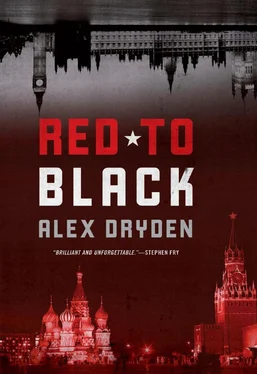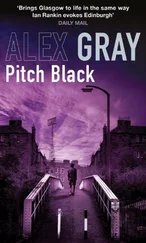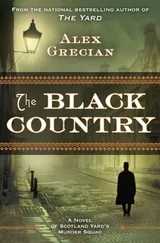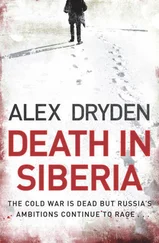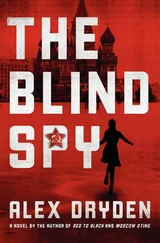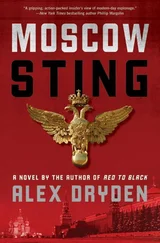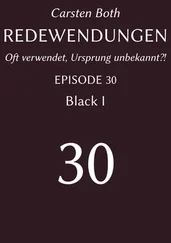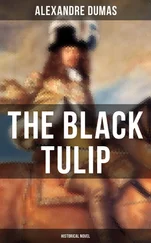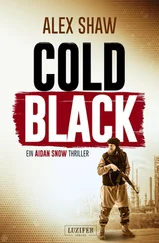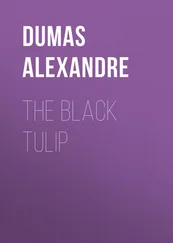‘Everything is so convenient,’ I said.
‘How do you mean?’
‘What they say, that’s convenient, of course, from their point of view. And your denial, that, too, is convenient. It relies on us both knowing that they are more than capable of faking everything.’
I let him take me by the shoulders then.
‘I love you, Anna,’ he said, and I looked deep inside him. I felt our lives come together with the contact of his hands.
‘I love you too,’ I said.
He grinned.
‘Well, that’s all right, then,’ he said.
We sat in the rain and held each other awkwardly. I knew I couldn’t bear to be without him then.
In the silence, with just the patter of the raindrops and the steady drone of traffic which becomes, in a city, like a kind of silence, he echoed my thoughts.
‘I can’t bear to be without you,’ he said.
‘That’s what Nana always said was the only test of love,’ I replied.
Finn and I went to bed just before midnight. He turned to me in the bedroom, looked me in the eyes, and asked me to marry him.
It was the most direct question he’d ever asked me and I said yes immediately, without thinking. It was as if someone had asked me if I wanted a glass of water when I was dying of thirst.
And so Finn and I got married, just as the year 2006 began.
AT THE END OF APRIL,Finn told me we were to travel to Liechtenstein. He said we should go by separate routes, as we usually did, but I thought that now it seemed like we were two parents who travel separately so that their children aren’t left orphaned.
I flew to Zurich and Finn to Munich. We were to meet at the Café Sacher in Vaduz, Liechtenstein’s capital, at 4.20 p.m. on 4 May. Failing that, our fall-back plan was to return at staggered hours over the next three days. I don’t know why Finn made these complex arrangements, he never had before, but I should have guessed that he knew he was getting close to danger. I never saw him making a call, doing anything that concerned the Plan, but I guess he was setting up what was to be the final act, out of my sight.
We met at the time appointed in the Café Sacher, an ancient building which sagged over a cobbled street off the main square in Vaduz.
Finn had rented a car and after we’d had coffee and some pastries he’d bought at another café–which irritated the proprietor–we walked down the hill to a car park, the closest a car could approach the square. It was a beautiful day though, as Finn said later, there was still a hint in the Alpine evenings of the winter just passed. There’d been a huge snowfall in the middle of April.
We drove out of the city in the last warmth of a bright, clear afternoon and headed up into the mountains that bordered Germany. It was a beautiful drive. The fair-skinned cattle were cropping the early grass on the Alpine pastures where they would remain until the September transhumance, the ancient tradition which brought them down to the lower slopes. We saw few people, hikers mainly, and one or two farmers in the distance. When we passed two seriously equipped hikers, Finn looked at them in astonishment.
‘Whatever happened to stopping for a drink?’ he said, and gesticulated at the hoses connected up to their mouths from their backpack water bottles.
After driving for more than an hour we were very high up and there were fewer barns and even fewer farmhouses. The road we were taking had now become a dirt track and still we climbed until, in the lee of a ridge, we saw a very old wooden barn, with a wooden house attached to it, made in the days when animals and humans lived together.
Finn had talked for most of the way. He explained that we were on the last lap that would connect the money that came into the Exodi accounts with its destination, and thus the Plan would be laid out for a child to see, let alone Adrian and the Service. He called Exodi’s purpose, the funds paid from Russia and their destination, the in and out trays. As we approached the last few miles towards the distant farmhouse, he began to tell me why we were here.
‘Pablo is a very bad Italian,’ Finn said as he drove, in his usual obtuse way, not explaining who Pablo was. ‘In the early seventies he smuggled dope in a yacht he’d stolen. His regular route was up from Morocco to Holland. He made himself a lot of money and lost most of it gambling and drinking and whoring. But he learned some skills that have been invaluable to us…’ by which I assumed he meant the Service ‘…and, no doubt, to anyone else who paid him the right money. Pablo is a Venetian merchant of secrets. When he was finally arrested by the Dutch police, they made a deal with him and he happily turned in his old drug-running comrades to save his own skin. Then the Dutch appointed him their police drug expert. He was a good choice. Pablo was dealing drugs from the sixties and was the first person I ever met who owned a mobile phone. I remember it. It was the size of a radio set.
‘So Pablo was living in Holland, under arrest within its borders, until he’d served his time as their drug expert. The last time I visited him at the end of the nineties, he was testing all the drugs that came into police possession, to check their quality in order for the correct prosecutions to be made. The Dutch had also let him cultivate his own marijuana in greenhouses in the east of the country–legally and for medical purposes only.
‘I remember Pablo’s kitchen in Nijmegen, something his police employers never saw. It was full of jars of every kind of drug, and every quality of every kind of drug, that he’d skimmed off the top of the smuggled goods the police had seized.
‘But then in 2000 Pablo changed. He’d run his term of being legally confined to Holland and he came to Liechtenstein. His knowledge of how and who to bribe in national police forces turned out to be even more useful than his knowledge of drugs. Somehow he infiltrated his way into Liechtenstein’s financial authority and he is one of the few outsiders who dines regularly with a member of the committee. Pablo’s the reason we’re here.’
‘He doesn’t sound very reliable,’ I said.
‘He’s completely unreliable,’ Finn laughed. ‘And that’s why he’s so reliable. If you shout down the stairs to Pablo “Where are you?” and he says, “The kitchen”, you can be sure he’s in the bathroom.’
‘So why is he so important to us, to where we’re going?’ I asked. ‘Why are you trusting him?’
‘Oh, I’m not trusting him,’ Finn said. ‘He’s told me he won’t say a word until I’m out of the country, that’s all. I believe that. But I know that what he’s given me is so important he must be desperate to pass on to someone else my interest in it. So we’ll go straight into Germany after this.’
‘Why would Pablo give you anything?’ I asked.
‘OK, not given, exactly, of course not, no. He’s the great Venetian merchant. We’ve exchanged what each of us wants with the other. I’ve given him some very valuable knowledge. It would get me thrown in jail if they knew in London I’d done it. No, Pablo never gives anything away. He’ll already be selling my information now, I should think. It’s taken me a long time to set this up,’ Finn added.
I didn’t ask him what state secret he’d sold to Pablo in return for whatever information brought us here.
‘So we’ve come to meet Pablo, have we? Up here?’ I said.
‘No. The man we’re meeting is part of the information Pablo’s given me,’ he replied. ‘According to Pablo, the man we’re seeing has hard information that links the KGB and the Russian mafia with their agents in the West. This is where we will find how Exodi works.’
‘From a farmer in a barn in the Alps?’ I asked doubtfully.
Читать дальше
